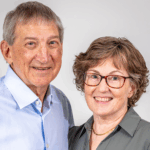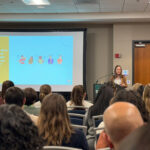Neurodiversity – Origins and Impact

FEATURED POSTS
September 25, 2025
September 2, 2025
By Katherine Johnson. M.S., BCBA
Senior Director of Partnerships, LEARN Behavioral
Judy Singer is an autistic Australian social scientist. In the 1990’s, seeing echoes of her mother’s struggles in herself and her own daughter, it occurred to Singer that this common thread pointed to the possibility that their differences were actually neurological traits. They were having a first-hand experience of that part of biodiversity that is the natural range of variations in brain functioning: she coined it neurodiversity.
The neurodiversity paradigm considers all brains to be normal; brain differences are simply the neurological counterpart to genetic variations in height, eye color, or hair color. Scientists consider such variation in biological traits to be essential to the health of individual populations and entire ecosystems. When viewing autism through the lens of neurodiversity, it comes to light that some of the individual differences that have been assumed to need remediation in the past, may actually be important in helping society as a whole make progress through new and different ways of thinking.
The concept of neurodiversity has been enthusiastically embraced by that portion of the autistic community who are able to speak, as it promises to alleviate some of the bias and discrimination they have experienced. Their common message? Specific words and types of support can have unintended negative effects, causing them to feel inferior, powerless, misunderstood.
Arising from these negative experiences is a more widespread understanding of how words and actions affect the private events (thoughts and feelings) of people on the spectrum. ABA practitioners are charged by the BACB Ethical Code to “treat others with compassion, dignity, and respect,” and the voices of the neurodivergent convey essential information about ways to do this.
LEARN’s Response
LEARN’s neurodiversity initiative is a direct result of listening to the insights of autistic folks who are able to express their experiences of living in a society that was built for neurotypical people.
- Development of a Person-Centered ABA workgroup – Learn Leadership charged a workgroup of clinical leaders with the task of supporting clinicians in reaching our vision for a neurodiversity-informed, Person-Centered ABA approach. The workgroup includes clinicians, supervisors, and clinical development individuals.
- Forming of a Neurodivergent Advisory Committee – The first action of the Person-Centered ABA workgroup was to formalize a process for getting input from the neurodivergent community. The committee is made up of neurodivergent clinicians and non-clinicians who work at LEARN; they meet regularly to review and give feedback on articles, trainings, and other materials, and are compensated for their role on the committee.
- Co-creation of the Values Statement – The Person-Centered Workgroup and the Neurodivergent Advisory Committee co-created a values statement, entitled “LEARN Values Neurodiversity.” The statement was written in order to express our position to our clinicians and also guide subsequent actions by the Person-Centered ABA Workgroup. It was presented at an internal training and is available on our website.
- Communication – Shifting the mindset of a large organization doesn’t happen overnight. In order to connect regularly with our clinicians on person-centered topics, a portion of our monthly video message to clinicians includes information about subjects related to neurodiversity, such as ableism, assent, and including client input in treatment planning. It’s important that staff are not only hearing this information but also discussing it, so each month, clinical teams engage in discussions with their colleagues on these topics.
- Assent Leadership Workgroup – With the addition of “assent” to the BACB ethical code and the subject’s importance to treating our clients with compassion, dignity, and respect, LEARN is offering “guided exploration” groups in assent that meet regularly for four months. The intention is to create local leaders in Assent-Based Programming throughout our network.
- Treatment Plan Evaluations – Our Treatment Plan Evaluation team works hard to review clinicians’ clinical work through the permanent product of their treatment plans. These reviewers have been given resources to help them identify Person-Centered practices to promote in their feedback.
- New Hire Training – In the 2022 revision of our New Hire Training for behavior technicians, we are explicitly teaching them about neurodiversity and assent, as well as ensuring that language throughout is respectful, and that programming examples fit Learn’s conception of Person-Centered ABA.
- Autistic Voices – Throughout this process, we are having an increasing number of autistic guests on our podcast and making it a regular practice to interview autistic folks for guest blog posts. These are ways that we can listen to autistic voices ourselves and also use our resources to center those voices in the ongoing cultural conversation.
As ABA practitioners, we have always cared about our clients – helping and supporting others is our entire reason for being. In the initial years of our still-young field, that care was expressed by taking a singular approach: teaching skills to help them function in our society. As autistic self-advocates find more channels by which to make their voices heard, the themes that are emerging tell us that there is more to supporting this community than just teaching skills. For instance, using words that validate our clients’ identities and sense of self is important. We can create a positive emotional experience for the people we support during the learning process – by listening to them and giving them agency. And most importantly: where success measures are concerned, our clients’ quality of life should be central.
LEARN is listening.
To learn more about neurodiversity, check out our other blogs “Voices for All: Ash Franks” and “Neurodiversity: What It Means, Why It Matters.”






